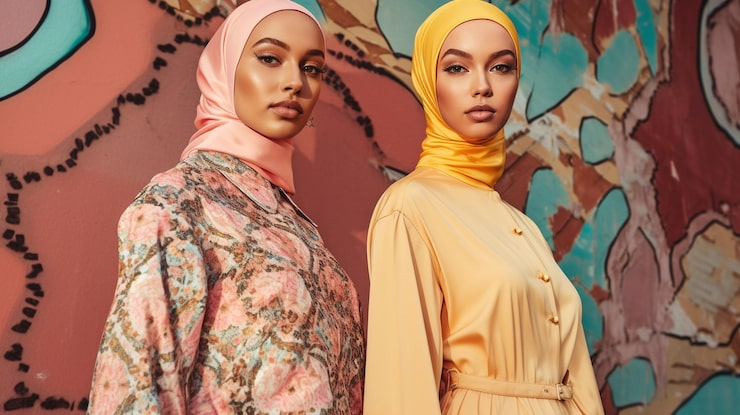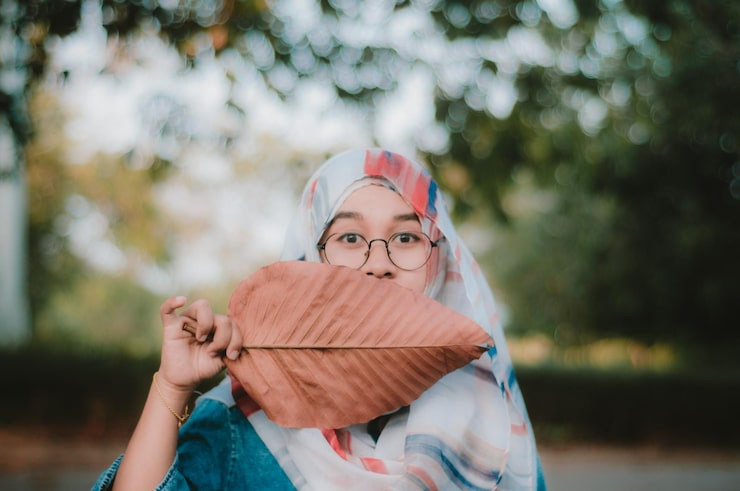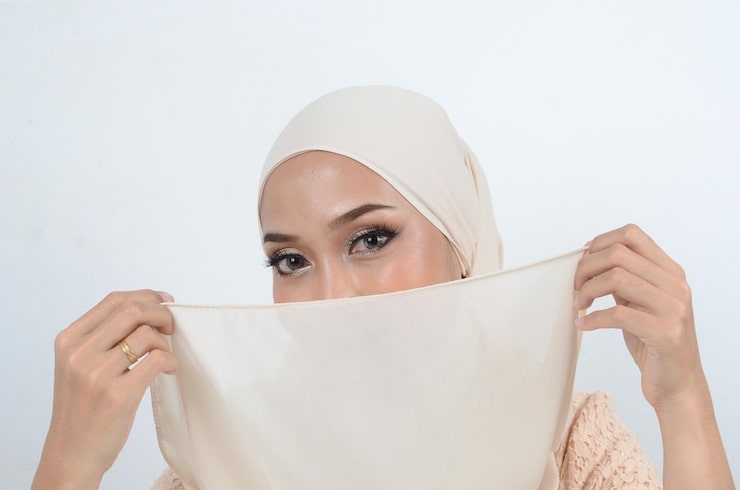Hijab Fabrics and Skin Tones: How to Pick Colors That Flatter You
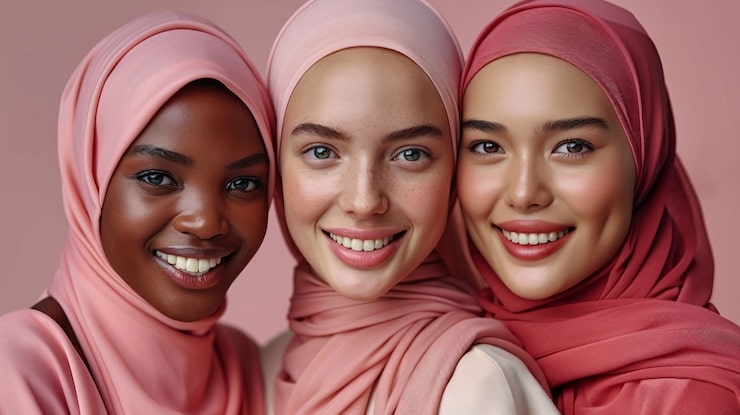
Choosing a hijab is about more than modesty. It is also about showing who you are, feeling comfortable, and having self-assurance. For many women, a big difficulty is picking the hijab colors and fabrics that work best for them. Wearing shades that go well with your skin tone can give your face a natural glow. On the other hand, mismatched colors might create a plain look. First of all, the right material provides comfort all day long. This is true whether you are at work, at a wedding, or just out for the day.
This article blends useful fashion tips with fabric knowledge to help you find your ideal match. What's more, it introduces a manufacturing partner for those in the wholesale business.
Why Skin Tone Matters in Choosing Hijab Colors
Skin tones can be sorted into warm, cool, and neutral undertones. These undertones react with colors in different ways because of how light bounces off the skin.
(1) Warm undertones (yellow or golden hints): look lively in earthy and autumn-style colors.
(2) Cool undertones (pink or bluish hints): shine in jewel tones and frosty shades.
(3) Neutral undertones (a good balance): are flexible and can work with both warm and cool color groups.
Understanding this basic idea helps you steer clear of "washed-out" looks. Thus, it makes sure that your hijab brings out your natural beauty instead of hiding it.
How to Identify Your Skin Undertone
Many women are not sure if they have a warm, cool, or neutral undertone. Don't worry. Here are some easy methods to find out:
(1) Vein Test: Look at your wrist veins in natural light. If they seem greenish, you probably have a warm undertone. Blue or purple veins point to a cool undertone. If you really can’t tell, you might be neutral.
(2) Jewelry Test: Gold jewelry usually looks great on warm undertones. Silver, however, tends to improve cool undertones. Neutral undertones often look good in both.
(3) White Cloth Test: Hold a white hijab or scarf close to your face. Does your skin look fresh and rosy? You’re cool-toned. If it appears golden or a bit tanned, you are warm-toned. Neutral undertones look nice in both.
Tip: Never test under artificial lighting. You will get the most accurate results in natural daylight.
Best Hijab Colors for Different Skin Tones

Fair Skin Tones
l Recommended Colors: Soft pastels and blush pink are great choices. Dusty blue also works well. Besides, jewel tones such as emerald and sapphire are very flattering.
l Avoid: Pale beige or cream shades. These are too close to the skin and may make you look drained of color.
l Styling Example: For the office, try pairing a pastel pink chiffon hijab with a grey blazer. This creates a professional but soft look.
Medium Skin Tones
l Recommended Colors: Olive, camel, and teal are fantastic. Also consider mocha and burnt orange.
l Avoid: Really bright neon shades. They can clash with your natural warmth.
l Styling Example: For daily outfits, an olive jersey hijab with denim gives you comfort and a well-rounded look.
Deep Skin Tones
l Recommended Colors: Go for bold jewel tones. Think royal blue, maroon, mustard, and emerald.
l Avoid: Very light pastels, which might not look as lively.
l Styling Example: For special events, a mustard satin hijab matched with a maroon abaya makes for a beautiful contrast.
Choosing the Right Hijab Fabrics for Comfort and Style
Hijab colors should compliment your face. But the material is what decides how confident you feel wearing it all day. Every fabric has its own good points.
Cotton
l Features: It’s breathable and lightweight. It's also non-slippery.
l Best For: Everyday use, school, and hot weather.
l Care Tip: Wash it in cold water so that it doesn't shrink.
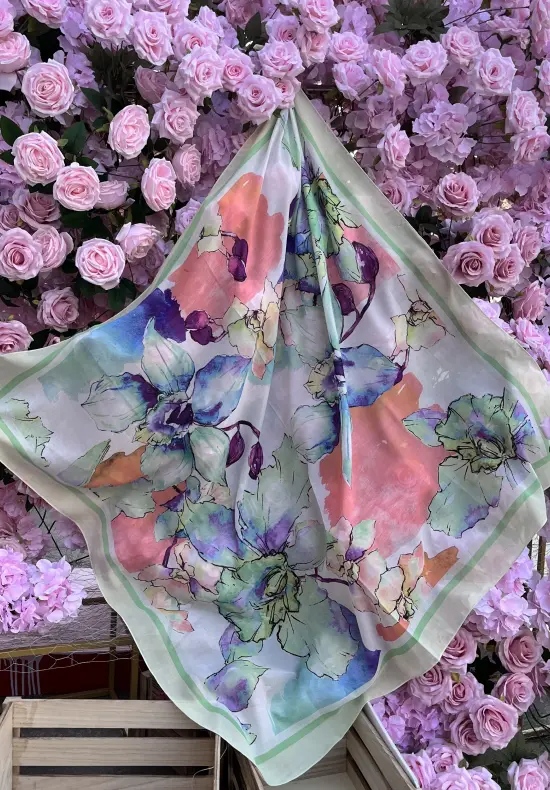
Chiffon
l Features: It’s sheer and has a graceful drape. It can be a little slippery.
l Best For: Weddings and special events. It is also good for layering with undercaps.
l Care Tip: Hand wash it and let it air dry. This will keep its flowy feeling.
Jersey
l Features: It's stretchy and easy to wrap. No pins are needed.
l Best For: Workouts and travel. Or just for your casual days.
l Care Tip: Stay away from high heat in dryers to keep it from losing its stretch.
Silk and Satin
l Features: They are luxurious and shiny. Perfect for formal wear.
l Best For: Parties, evening events, and bridal hijabs.
l Care Tip: Dry clean for a shine that lasts a long time.
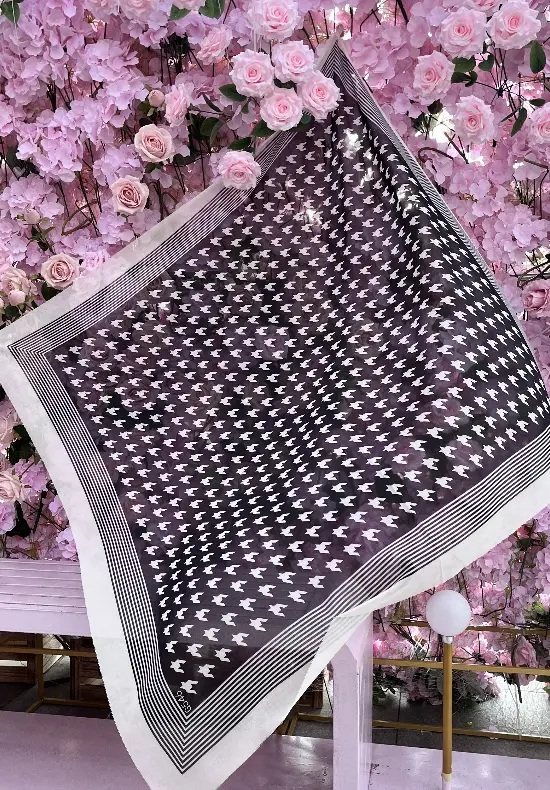
Market Insight & 2025 Trends
Core fabrics like Cotton Voile and Polyester are still very popular. This is because they balance low cost and elegance. But the market is also adopting new trends. There is a growing demand for sustainable materials, for instance, organic cotton and recycled fabrics. These appeal to the environmentally aware shopper. For trendier looks, high-end materials like silk and satin are now joined by textured and functional fabrics.
Trending Hijab Colors for 2025:
l Jewel Tones: Deep, rich colors add quick sophistication. Think emerald green, royal blue, and burgundy.
l Earthy Tones: Shades like terracotta, clay, and sage green give a natural and subtle look.
l Bold & Bright Colors: For anyone who loves making a statement, lively shades like tangerine and coral are popular.
Jinlai Textile – A Partner for Your Hijab Business
For shop owners and distributors buying hijabs in large amounts, picking a manufacturing partner is a major business choice. Jinlai Textile is a company that specializes in making high-quality hijabs. It presents itself as a committed partner for businesses around the globe. The company is located in Shaoxing City, Zhejiang Province, China, and has more than ten years of experience in the field.
l What They Offer: Jinlai Textile has a large variety of fabrics. These include Cotton Voile, Silk Voile, and Polyester choices. They also provide custom services, like OEM development, special prints, and private labels for brands.
l Their Stated Advantages: Their website highlights their strict quality checks and good wholesale prices. Their team handles everything from fabric creation and design to making and selling the product. So that, they aim to offer a complete solution for their clients.
l A Focus on Customer Service: Jinlai Textile says it is dedicated to making customers happy. It offers personalized services to fit the specific needs of every client.
l By showing a clear picture of its offerings and goals, Jinlai Textile wants to be the main manufacturer for businesses that want to grow their hijab lines with a partner who gets the industry.
Conclusion
Picking hijab colors for your skin tone doesn't have to be hard. You can highlight your natural beauty with self-assurance. Just identify your undertone and play around with shades that look good on you. Matching these colors with the right fabrics ensures both style and function. You might choose cotton for daily comfort, chiffon for grace, or silk for luxury.
For businesses, working with a skilled manufacturer like Jinlai Textile can give you access to top-notch fabrics, good pricing, and tailored solutions. Whether you are a person searching for your ideal hijab or a shop owner stocking the latest trends, the right selection will help you glow inside and out.
FAQs
Q1: How can I build a practical 'capsule wardrobe' for my hijabs?
A: A good place to start is with 5-7 hijabs. First, get 2-3 neutral colors (black, grey, beige) in everyday materials like cotton or jersey. Then, add 2 hijabs in colors or prints that flatter your skin tone. These will add personality to your outfits. Finally, get one high-quality piece in a fancy fabric like silk or chiffon for formal events.
Q2: Which hijab fabric is best for daily wear?
A: Cotton and jersey are the most useful. Cotton is breathable, which is great for hot weather. Jersey is non-slip and comfy for active people. Many women have both in their closets for more options.
Q3: Can I wear bright hijab colors if I have a neutral undertone?
A: Yes. Neutral undertones are the most adaptable. You can wear both lively jewel tones and soft pastels without a problem. The trick is to balance bold hijab shades with neutral clothes for a sense of harmony.

